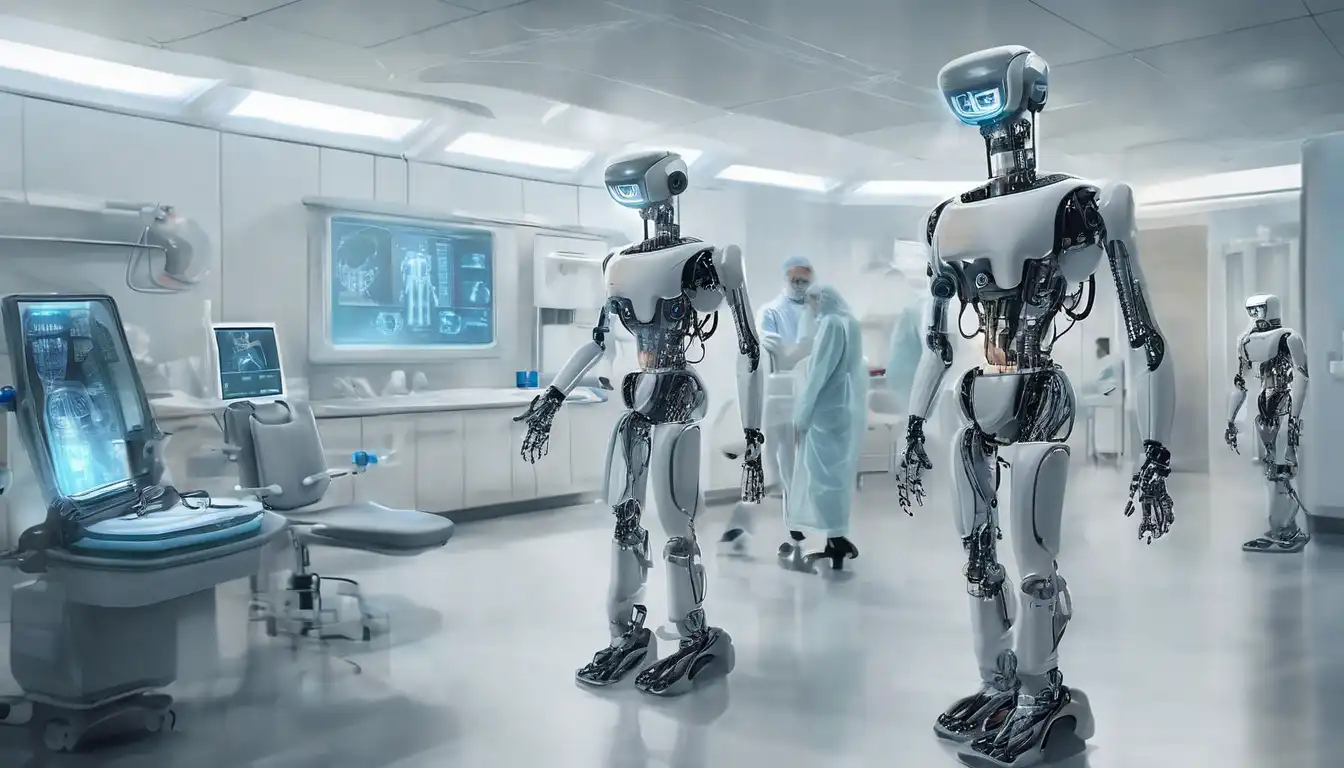The Next Era of Robotics in Healthcare
The integration of robotics into healthcare is transforming patient care, surgical procedures, and rehabilitation processes. This technological advancement is not just a glimpse into the future; it's a present reality that's reshaping the healthcare industry. From robotic surgery to automated patient monitoring systems, the potential for robotics in healthcare is boundless.
Robotic Surgery: Precision and Efficiency
One of the most significant contributions of robotics in healthcare is in the field of surgery. Robotic surgical systems, such as the da Vinci Surgical System, allow surgeons to perform complex procedures with greater precision, flexibility, and control than traditional techniques. These systems reduce the risk of complications, minimize pain and blood loss, and shorten recovery times for patients.
Automated Patient Monitoring
Robotics technology has also revolutionized patient monitoring. Automated systems can now track patient vitals around the clock, alerting healthcare providers to any changes that may indicate a deterioration in the patient's condition. This continuous monitoring ensures timely interventions, improving patient outcomes and reducing the workload on healthcare staff.
Rehabilitation Robotics
Rehabilitation robotics is another area where technology is making a significant impact. These robotic devices assist patients in recovering from strokes, spinal cord injuries, and other conditions that affect mobility. By providing consistent and precise therapy, rehabilitation robots help patients regain strength and mobility faster than traditional methods.
The Role of AI in Healthcare Robotics
Artificial intelligence (AI) plays a crucial role in the advancement of healthcare robotics. AI algorithms enable robots to learn from data, improve their performance over time, and make decisions based on real-time information. This synergy between AI and robotics is paving the way for more personalized and efficient patient care.
Challenges and Ethical Considerations
Despite the benefits, the integration of robotics into healthcare comes with challenges. These include high costs, the need for specialized training for healthcare professionals, and ethical considerations regarding patient privacy and the delegation of care to machines. Addressing these challenges is essential for the sustainable adoption of robotics in healthcare.
Looking Ahead: The Future of Robotics in Healthcare
The future of robotics in healthcare is bright, with ongoing research and development promising even more innovative applications. From nanorobots that can deliver drugs directly to diseased cells to robotic exoskeletons that restore mobility to paralyzed patients, the possibilities are endless. As technology continues to evolve, so too will the ways in which robotics can enhance patient care and improve health outcomes.
For more insights into how technology is transforming healthcare, explore our articles on AI in Healthcare and Telemedicine.
